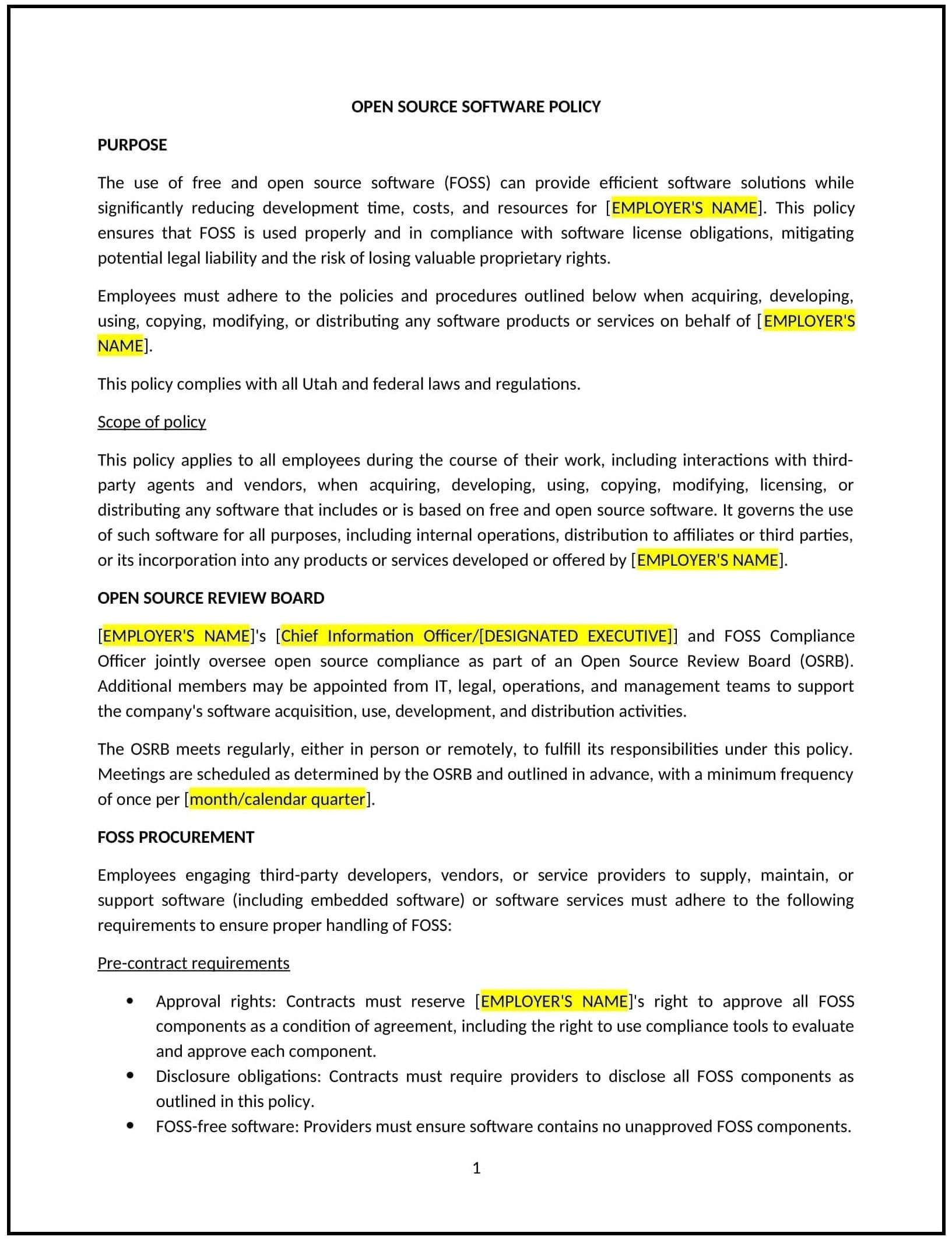Got contracts to review? While you're here for policies, let Cobrief make contract review effortless—start your free review now.

Customize this template for free
Open source software policy (Utah)
This open source software policy is designed to help Utah businesses establish guidelines for using, contributing to, and managing open source software. It outlines procedures for ensuring compliance with open source licenses, protecting intellectual property, and maintaining software security.
By adopting this policy, businesses can leverage open source software effectively, reduce legal risks, and align with general best practices for software management.
How to use this open source software policy (Utah)
- Define open source software: Explain what open source software is and how it differs from proprietary software.
- Establish usage guidelines: Specify how employees can use open source software in business operations.
- Address licensing compliance: Provide steps for ensuring compliance with open source licenses, such as attribution or sharing modifications.
- Protect intellectual property: Prohibit the unauthorized use or distribution of proprietary code in open source projects.
- Monitor security risks: Regularly review open source software for vulnerabilities and apply updates as needed.
- Train employees: Educate employees on open source software usage, licensing, and security best practices.
- Review and update: Assess the policy annually to ensure it aligns with evolving software trends and business needs.
Benefits of using this open source software policy (Utah)
This policy offers several advantages for Utah businesses:
- Leverages open source benefits: Allows businesses to use cost-effective and innovative open source solutions.
- Reduces legal risks: Ensures compliance with open source licenses and protects intellectual property.
- Enhances security: Provides guidelines for monitoring and addressing open source software vulnerabilities.
- Aligns with best practices: Offers a structured approach to managing open source software.
- Supports innovation: Encourages the use of open source tools to drive business growth and efficiency.
Tips for using this open source software policy (Utah)
- Communicate the policy: Share the policy with employees and include it in the employee handbook.
- Provide training: Educate employees on open source software usage, licensing, and security best practices.
- Monitor compliance: Regularly review open source software usage to ensure adherence to the policy.
- Address issues promptly: Take corrective action if open source software is used improperly or poses security risks.
- Update regularly: Assess the policy annually to ensure it aligns with evolving software trends and business needs.